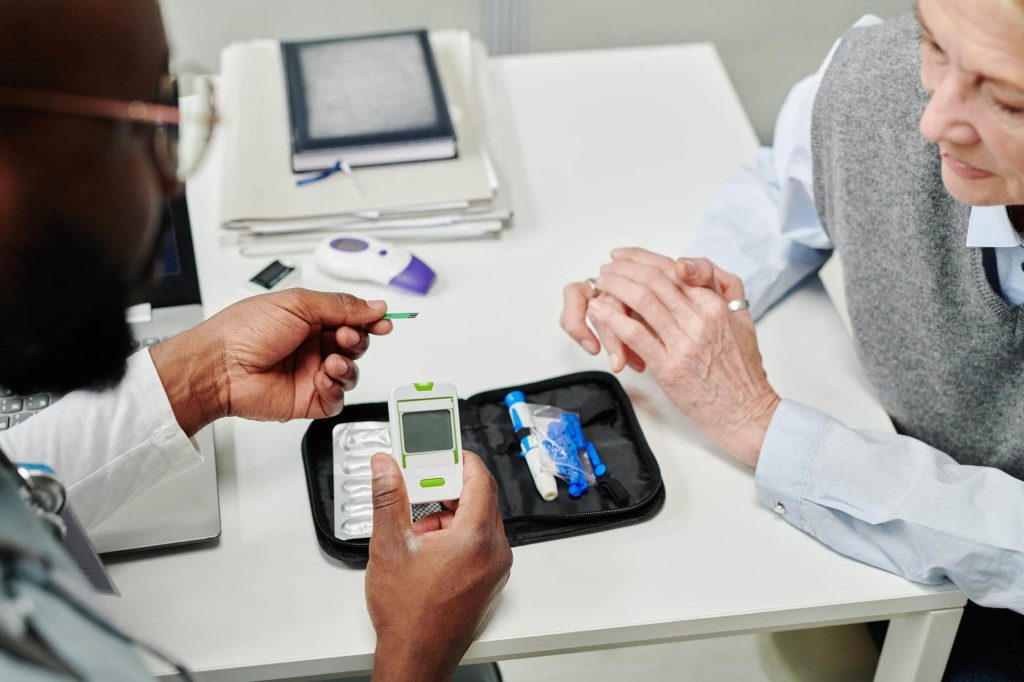Diabetes isn’t just about blood sugar—it’s a long-term condition that can quietly lead to serious diabetes health problems, including organ damage, nerve issues, and even mental health struggles. If not properly managed, it may develop into severe complications of diabetes and trigger multiple diabetes-related diseases. But the good news? Many of these risks can be controlled with the right lifestyle and awareness.
What is Diabetes and Why Does It Matter?
Diabetes, especially Type 1 and Type 2, disrupts the body’s ability to process sugar efficiently. In Type 1, the body makes little to no insulin. In Type 2, insulin is present but isn’t used effectively. Over time, both can lead to dangerous diabetes health problems if not treated properly.
Lifestyle choices like poor diet, lack of exercise, and obesity are key contributors, particularly for Type 2 diabetes. And with millions affected globally, early management is crucial to avoid long-term complications of diabetes and prevent severe diabetes-related diseases.

Major Diabetes Health Problems You Should Know
Unchecked high blood sugar can silently harm many organs in the body, often without obvious symptoms at first. Over time, diabetes can lead to serious complications that affect daily life and overall health. Here’s a closer look at the major diabetes health problems, along with other often-overlooked diabetes-related diseases that deserve equal attention.
1. Heart and Blood Vessel Damage: High blood sugar levels can damage the arteries, making them stiff and narrow—a condition called atherosclerosis. This increases the risk of high blood pressure, heart attacks, strokes, and other cardiovascular problems. It’s one of the most common and life-threatening complications of diabetes.
2. Kidney Issues (Diabetic Nephropathy) : Your kidneys filter waste from the blood, but diabetes can damage these tiny filters over time. This may lead to chronic kidney disease and, in severe cases, kidney failure. Without proper care, some people may require dialysis or a kidney transplant.
3. Eye Problems (Diabetic Retinopathy): Diabetes can damage the small blood vessels in the eyes, causing blurred vision, floaters, or even blindness. Retinopathy is one of the most common diabetes-related diseases, and it can progress silently without early symptoms.
4. Nerve Damage (Diabetic Neuropathy) : Tingling, numbness, or pain in the feet and hands are warning signs of nerve damage. If not managed, this can lead to unnoticed injuries or infections and, in extreme cases, amputations. Regular foot care is crucial to avoid serious outcomes.
5. Foot Complications: Poor circulation and nerve damage make feet especially vulnerable. Even small cuts or blisters can turn into ulcers or infections. If left untreated, this can lead to amputation—a serious but preventable diabetes health problem.
6. Skin Disorders: People with diabetes are more prone to bacterial and fungal infections. Diabetic dermopathy—dry, scaly, or itchy patches on the skin—is also common. Good skin hygiene and proper sugar control help reduce the risk.
7. Digestive Issues (Gastroparesis): Diabetes-related nerve damage can slow down the digestive system, causing symptoms like bloating, nausea, or stomach discomfort. Though not widely talked about, gastroparesis is a real and frustrating issue for many.

8. Mental Health Concerns: Managing diabetes every day can be overwhelming, leading to depression or anxiety. These emotional struggles are often overlooked but are just as important as physical symptoms. Mental health support should be a regular part of diabetes care.
How to Manage and Prevent Diabetes Health Problems
Fortunately, there are clear steps to reduce the risk of diabetes health problems, avoid complications of diabetes, and stop the development of diabetes-related diseases:
- Monitor Blood Sugar
Keep your sugar levels in check with regular testing. Work with your doctor to adjust medication, insulin, or diet as needed. - Eat a Balanced Diet
Include whole grains, leafy greens, lean proteins, and fiber-rich foods. Avoid added sugar and bad fats. Diet plays a powerful role in preventing diabetes complications. - Stay Physically Active
Walking, swimming, or simple workouts help improve insulin sensitivity and heart health. - Regular Checkups
Screen for eye, kidney, nerve, and foot health often. Early detection of complications of diabetes leads to better outcomes. - Care for Your Mental Health
Support groups or counseling can make a huge difference when dealing with emotional effects of diabetes health problems. - Use Natural Supplements Wisely
Ayurvedic formulations like SDP Ayurveda’s Asanadhi Gana Plus Kashaya, when used under medical guidance, may support your diabetes management as part of a broader lifestyle plan.
Final Thoughts
Diabetes isn’t just about managing blood sugar—it’s about staying ahead of potential risks. If ignored, it can lead to long-lasting diabetes health problems, dangerous complications of diabetes, and hard-to-treat diabetes-related diseases. But with the right strategies—monitoring sugar, eating well, staying active, and seeking emotional support—you can lead a healthier, more confident life.
Stay informed. Stay proactive. And most importantly, stay in control of your health.




